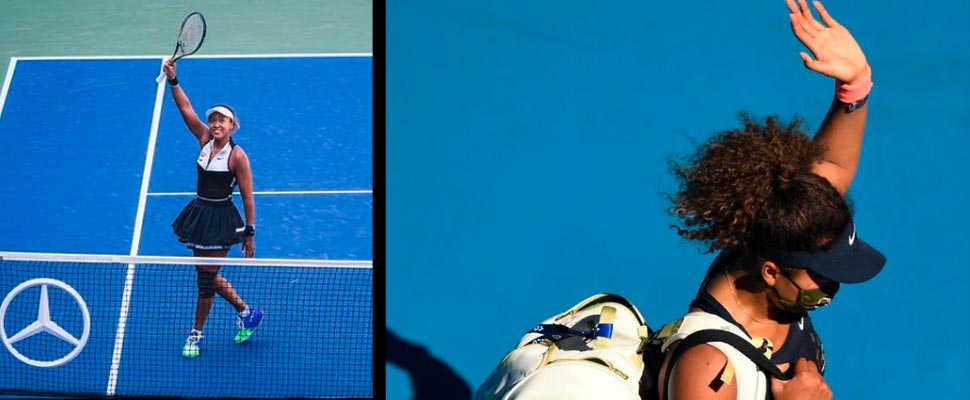Naomi Osaka the Tennis Player Who Opened the Discussion Between Sport and Mental Health

The Woman Post | Laura Valentina Cortés Sierra
Listen to this article
Naomi Osaka, the highest-paid female athlete ever recently opened a debate about mental health after withdrawing from The French Open, when her petitions to avoid post-match interviews for the sake of her mental health were not respected.
Naomi Osaka is the highest-paid female athlete ever and the second-best female tennis player in the world. From a diverse background that mixes Japanese, Haitian and American cultures, she is a huge figure not only for her tennis skills but also for her stance on various social justice issues, such as wearing, during the U.S Open, face masks with names of Black victims of racist violence or police brutality. She recently started a conversation about mental health, sport, and the media, after withdrawing from the French Open, when her petitions, for the sake of her mental health, were not respected.
Osaka recently said she wanted to skip the press conferences after matches because of her mental health concerns. Grand Slam tournaments, far from understanding, decided to fine her for $15,000 dollars and threaten with expulsion if she didn't meet her media obligations. The 23-year-old tennis player had to choose between playing and compromising her mental health or quitting the tournament.
After withdrawing she expressed in her Instagram “I would never trivialize mental health or use the term lightly. The truth is that I have suffered long bouts of depression since The US Open in 2018 and I have had a really hard time coping with that.” This was after people from the organization, fans, and media tagged her as spoiled, weak, and selfish. It can be a huge pressure to be such a huge figure as it was clear in 2018 when she defeated Serena Williams and some people in the crowd booed her.
In her Instagram post, Osaka also expressed “I am not a natural public speaker And get huge waves of anxiety before speaking to the world's media. I get really nervous and find it stressful to always try to engage and give the best answers I can. So here in Paris, I was already feeling vulnerable and anxious so I thought it was better to exercise self-care and skip the press conferences.”
Also read: WOMEN IN PROFESSIONAL SOCCER
As Kate Whitehead, Psychotherapist and author states “Tennis players – and athletes in general – aren’t robots designed solely to entertain and boost media ratings. They are human, regardless of how many endorsements and media commitments are attached to them”. She also highlighted that when the president of the French Tennis Federation, Gilles Moretton, held a press conference after Osaka’s withdrawal, he made his statement and left without answering any question “showing himself just how daunting it can be to have questions fired at you when you’re down.”
Christie Nordhielm, associate professor of marketing at Georgetown University highlights the importance of stop treating mental health as a taboo: “We wouldn’t be having this conversation if she had broken her ankle, with mental health, we have to treat it just like physical health. Would breaking her leg hurt her with sponsors? Things happen.”
Mental health issues keep being more discussed in sports since figures like Kevin Love, Michael Phelps, and Liz Cambage spoke about their personal struggles. Another thing to highlight about Naomi Osaka's attitude is that she offered to help rebuild the system in a way that is healthier for everyone “when the time is right I really want to work with the Tour to discuss ways we can make things better for the players, press, and fans."
Kevin Curry, fitness influencer and follower expressed his support telling her she was changing the world more than she could realize, “giving voice to so many. NO need to apologize. Period. Stay strong and know millions are wishing you well as you continue to take care of YOU.” Furthermore, Venus Williams commented on Instagram “So proud of you. Take care of yourself and see you back winning soon!”
Lewis Hamilton is a black Formula One runner that has been scrutinized by the media since he was 10 years old when he was the youngest ever to win the British Cadet Kart championship. He strongly supported the tennis player by saying “people not taking into account that she’s a human being, and she’s saying, ‘I’m not well enough to do this right now.’ I think that needs to be really looked into as to how people have reacted to that, and they should be supporting and uplifting to her.”




